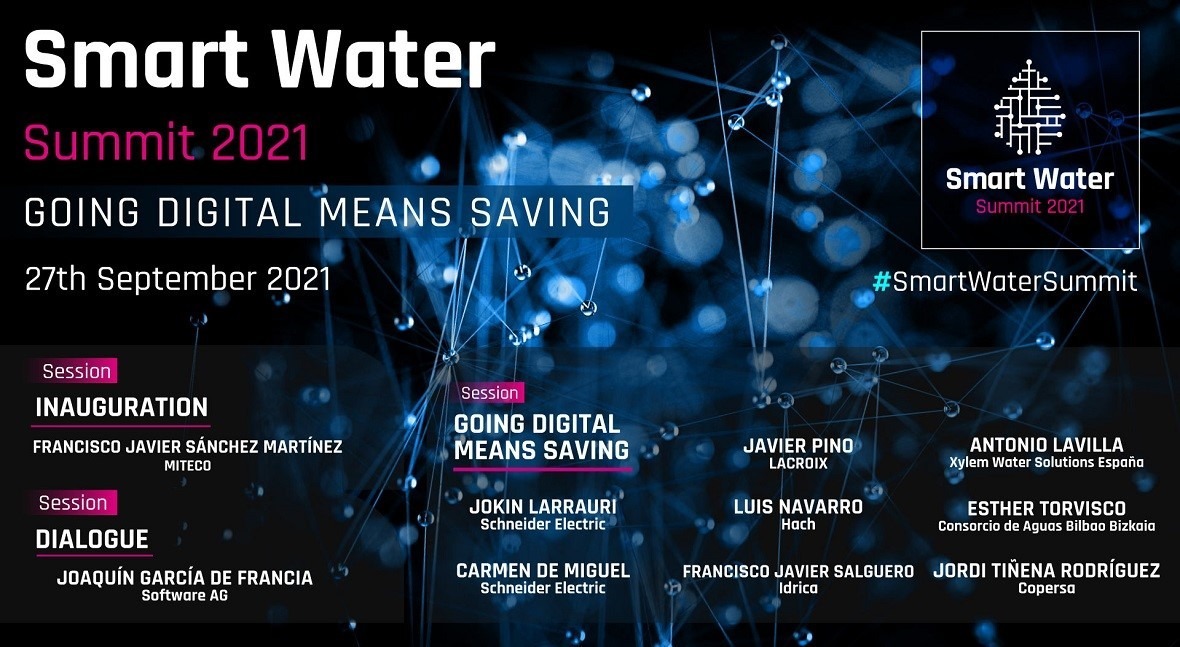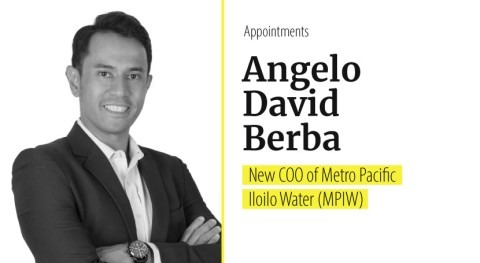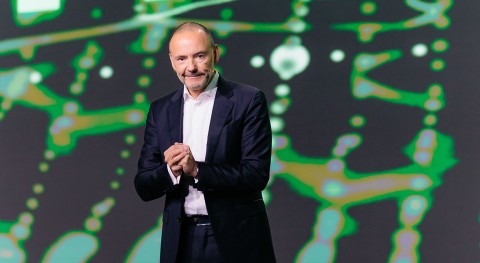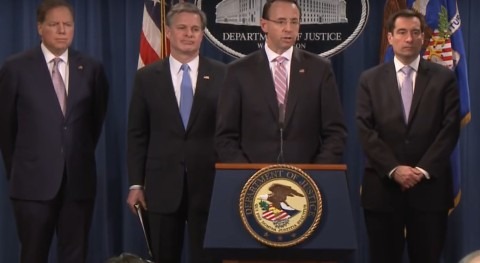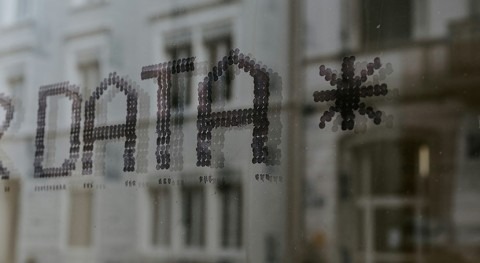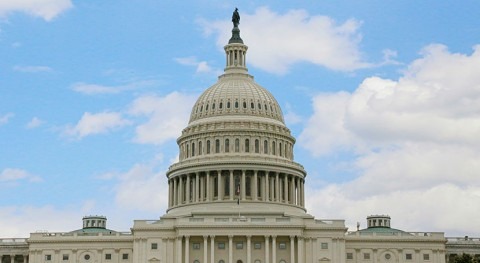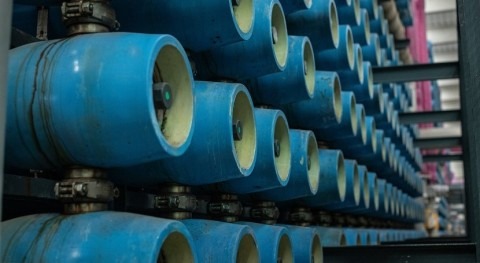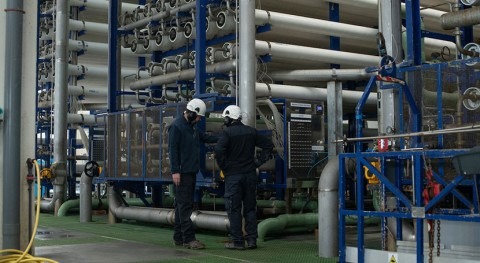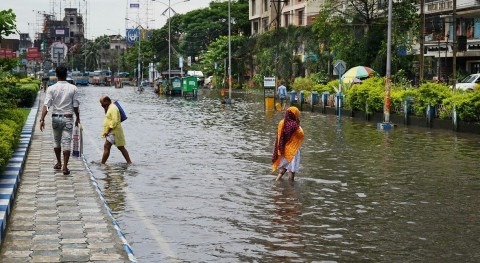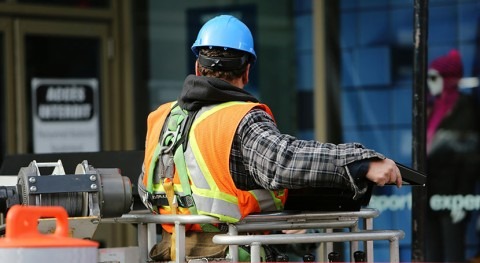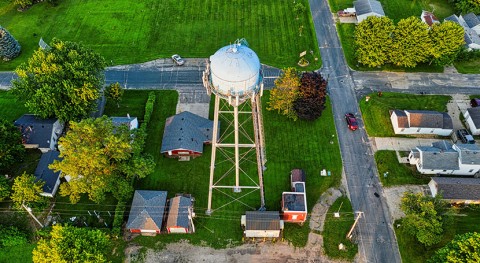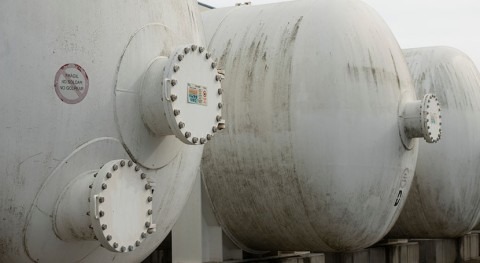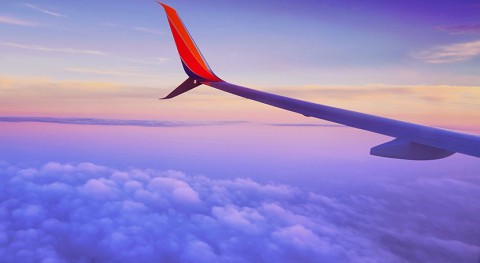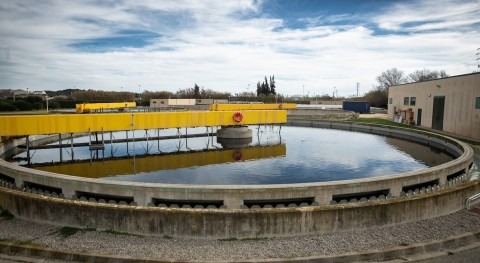After four years of successful events, the 5th Smart Water Summit is being organised by iAgua from Sept 27 to Sept 30, 2021.
The 2021 Smart Water Summit takes place in a context of unquestionable consolidation of digitalisation as a pillar of water management. The debate is no longer focused on the need to apply these technologies, but on the search for the best financial formulas to launch developments whose profitability is undeniable in the medium and long term, but which require an investment effort to transform the industry.
Following in the footsteps of the 2020 edition, in 2021 Smart Water Summit is an online event, with registration open to all interested parties. This year’s event will see discussions on the opportunities and challenges emerging as a result of the digital transformation, and showcase the solutions that are changing the water business across the planet. First-class speakers, including representative from public authorities, companies, research institutions and independent experts present the most significant success stories, with special attention to Spain and Latin America.
The 5th edition of the Smart Water Summit kicked off on Monday September 27 with an opening speech by Francisco Javier Sánchez Martínez, Deputy Director General for Water Protection and Risk Management of the Spanish Ministry for Ecological Transition and Demographic Challenge (MITECO), who shared the vision of the Government of Spain on the digital transformation of water management.
He noted that the health crisis has highlighted even more the importance of digitalisation and new technologies in the water sector. In this sense, as part of the recovery plan, Francisco Javier Sánchez said that one billion euros, around 20%, will be allocated to advance the digitalisation of water management. "It is essential for us to manage natural risks and climate change. We hope that artificial intelligence can help us improve early warnings, to avoid catastrophic situations." He concluded stressing the efforts put into water quality, an area where they are proposing new ways to monitor and treat waste discharges.
The event continued with a dialogue between Joaquín García de Francia, Sales Vice President Spain & Portugal of Software AG, and Alejandro Maceira, Founder and Director of iAgua, where they first discussed the digital transformation of society and the economy: "The water sector is under great pressure, due to the effects of climate change and a large population. We are beginning to be aware of the need to modernise it and seek efficiency," Joaquín commented. In this regard, he pointed out that "we have a broad debate and a great challenge ahead of us, with excellent projects: we have the technology, the means, and there is no doubt that the only way forward is improvement."
All this has been highlighted in the context of the pandemic we have experienced, where water played an essential role: "We have seen an acceleration of digitalisation and I think the response has been quite good," he said, adding that telecommunications have been very solid. Software AG is well aware of this as a leading company in software development worldwide and a major player in technology integration and business transformation.
Furthermore, the company has launched an IoT platform that allows companies to connect and manage IoT devices, do analytics on the data and transform it into business events that are integrated into the value chain and help make decisions: "Software AG has focused its product portfolio and all its R&D on integration, on an IoT platform, and on the definition, improvement and monitoring of business processes." Looking to the future and the position of Software AG as an industry partner in the next decade, the Sales Vice President Spain & Portugal has assured that the company "is growing" and the investment being made is recognised in the market, thus becoming "an important player in the water industry".
The last session in Monday’s programme was dedicated to this year’s summit theme: Going digital means saving”, where several experts have shown that digital transformation can be an excellent opportunity to reduce the operation and maintenance costs of water services and infrastructure.
First, Carmen de Miguel, Strategic Marketing Manager at Schneider Electric, spoke about the impact of digitalization and innovation on sustainability, where "the current trend in the water industry is to go from efficiency to sustainability" based on three pillars: reducing the carbon footprint, achieving resource efficiency and generating a positive impact on the environment, with digitalisation as a vehicle to achieve sustainability goals. Next, on the occasion of the creation of a new technology partner by Schneider Electric and Suez, Carmen introduced Jokin Larrauri, Deputy CEO of WayO, the name of this new joint venture announced for the first time at the Smart Water Summit: "WayO was born as a commitment to digitalisation, to develop software that suits water companies of any size with water cycle operations," he said.
Next, Javier Pino, Commercial Director Spain and Portugal of LACROIX, spoke about the Plan “España Puede” (Spain can) as an opportunity to go digital and save in water sector facilities. The company specializes in the implementation of remote-control systems, where digitalisation contributes decisively to improve energy efficiency. Thus, LACROIX helps to address the main challenges facing water and energy operators, focusing on five areas: permanent monitoring of facilities, guaranteeing the stability and security of the network, reducing service downtime, integrating renewable energy sources into existing networks, and reducing losses and non-revenue water.
The following speaker was Luis Navarro, Business Development Manager at Hach, who presented Claros, a Hach software platform: "Claros allows real-time control, managing remote data and maximising availability times", he said. He also highlighted the value of the data and the context, which are as important as measurements, and emphasized that the digitalisation activity of Claros includes "internet-enabled" controllers, sensors and process instruments, a digital platform and a CBSS (Cloud-Based Services Supplier). "Claros has more than 2,000 modules installed and has a cost reduction of between 10 and 50%."
Afterwards, Francisco Javier Salguero, Director of Operations at Idrica, focused his talk on how to save in the water sector by going digital. "Digital transformation can be defined as the integration of new technologies in all areas of a company to change the way it operates," he said. In this regard, he presented several examples of how the water sector can save with digitalisation, such as with the use of sensors in infrastructure or by detecting cuts or anomalies in supply.
The session also featured Antonio Lavilla, Product Manager Monitoring & Control at Xylem Water Solutions Spain, who presented some examples of solutions provided by Xylem for pumping systems that make use of digital technologies. "Our SMART approach seeks to make the product smart on its own without necessarily having to connect it to an external network." In this regard, in late 2016, early 2017, Xylem launched the first Flygt Concertor smart pump for wastewater pumping systems; the Flygt Bibo Alpha, launched in 2021, uses some of the technology developed in Flygt Concertor but for dewatering applications. Also, in terms of solutions related to intelligent services and networks, Antonio Lavilla talked about AVENSOR Cloud Service, a cloud-based service for the management of water equipment and infrastructure, and the SAM Pro tool used for predictive maintenance.
Then, Esther Torvisco, Deputy Director of Asset Management at Consorcio de Aguas Bilbao Bizkaia spoke about energy management at CABB, where 80% of the water they manage comes from the reservoirs of the Zadorra system. "From the CABB we have tried to take advantage of the surface of the treated water reservoirs to implement a photovoltaic facility", she said. Esther also explained the projects that CABB has implemented to rationalise energy consumption: "Digitalisation has allowed us to analyse the investments in small scattered pumping stations to see if they are working properly”, in such a way that they have been able to optimise consumption patterns.
Finally, Jordi Tiñena Rodríguez, Coordinator of Copersa's Irrigation and Industry Division, talked about the advantages of a digital system, mainly the improvement in management and access to information: "A digital system provides greater precision and improves the efficiency of the data and the volume that can be stored", he said. Specifically, the agricultural sector is going through a transition towards precision agriculture: "Precision agriculture leads to more accurate decisions with information that allows us to optimise resources and processes and improve production". Jordi also analysed the role of digitalisation in the present and future of agriculture, and stressed that "companies in the sector have the responsibility to carry out the digital transition trying to transfer the best knowledge and values to agricultural practices".


